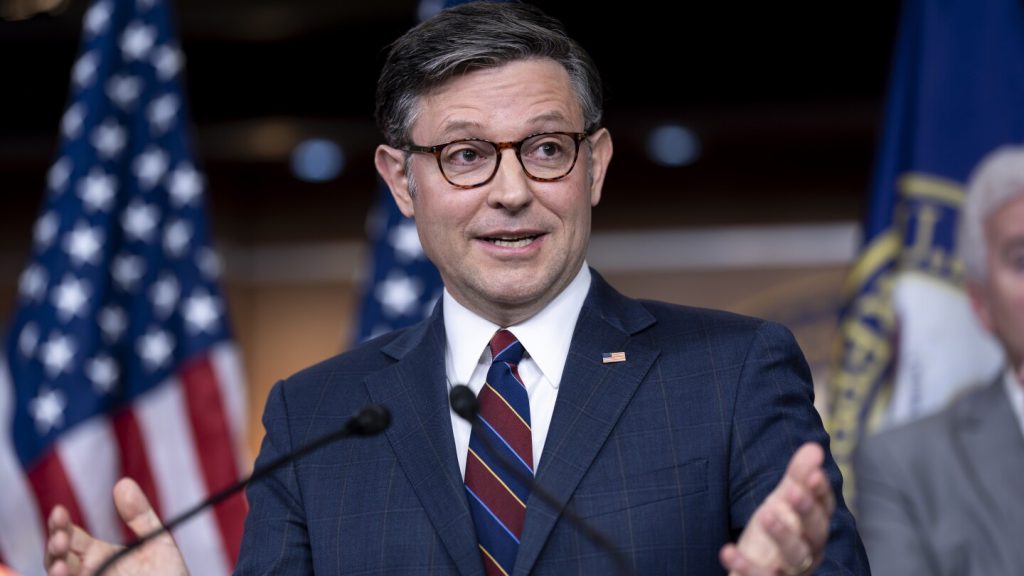House Speaker Mike Johnson is pushing for a vote on a bill that would fund the federal government for six more months and require states to obtain proof of citizenship when registering voters. This move comes as Congress needs to pass a stop-gap spending bill before the end of the budget year to avoid a government shutdown. House Republicans are focusing on making sure only American citizens can vote in elections.
Democrats are opposing the GOP effort, stating that any continuing resolution must have bipartisan support. They argue that Speaker Johnson is catering to the hard-right conservative wing of the party, similar to former Speaker Kevin McCarthy’s failed efforts last year. Democrats warn that the responsibility of a potential government shutdown will fall on House Republicans if they continue down this partisan path.
The voter registration measure requiring proof of citizenship is supported by House Republicans, especially the more conservative members. They believe it will improve confidence in the federal election system by ensuring only American citizens can vote. However, opponents argue that the bill would disenfranchise millions of people who may not have necessary documents readily available when registering to vote.
Republicans are using the voter registration bill as an opportunity to target Democrats on immigration-related issues, making it a campaign cornerstone. President Joe Biden’s administration strongly opposes the bill, stating that the justification for it is easily disproven. Some Republicans are putting the responsibility of a potential government shutdown on Senate Majority Leader Chuck Schumer if he does not allow a vote on the bill.
Another key issue to address with the short-term spending bill is the duration of the funding extension. While some Republicans prefer to extend funding until after the next president takes office in January, others are banking on Trump winning the White House again to secure spending cuts and policy priorities. Congress returns to Washington after a five-week recess, with the House and Senate still far from completing their work on the annual spending bills. The House has passed five out of 12 bills, while the Senate has not passed any, opting for a more bipartisan approach to the process.
Overall, the push for a proof of citizenship requirement for voter registration is shaping up to be a contentious issue between House Republicans and Democrats. The possibility of a government shutdown looms as both parties have differing views on how to proceed with the short-term spending bill. Speaker Johnson’s decision to combine the funding bill with the voter registration measure complicates the path to reaching an agreement and avoiding a potential shutdown just before the next presidential election.


